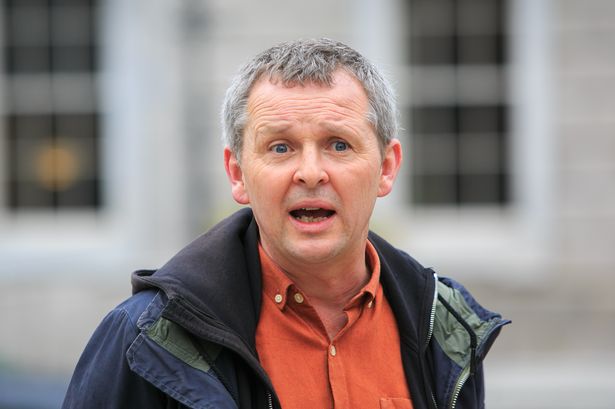The Higher Education Authority bill does not tackle the biggest problems facing the sector today, such as corporatisation and student mental health, People Before Profit TD Richard Boyd-Barrett has said.
The bill, which is currently at its second stage in the Dáil, proposes the most significant shake up of the higher education sector in 50 years, including granting the Minister for Higher Education the power to withhold funding from universities if there are concerns about their performance.
But Boyd-Barrett said in the Dáil today that he does not believe that the bill “guarantees anything” in terms of what it aims to achieve, such as socio-economic, cultural and environmental development, promoting the Irish language and promoting sustainability.
“Those are all very worthy aspirations”, he said. “But I’m not really sure how the bill achieves any of those things.”
“There’s nothing in it that I really see as: ‘Oh, this is radical, this is a radical departure to address the problems in further and higher education’. I just don’t really see it. In fact, I’m a little worried about it.”
“You have all these external appointees, and I just wonder who they will be”, Boyd-Barrett continued. “Because to my mind, one of the biggest problems with further and higher education is the corporatisation, the corporate takeover of further and higher education over recent years, where, because of the underfunding of further and higher education over many decades, colleges and so on, have been pushed, essentially, towards trying to get more and more sponsorship from the private sector from business.”
One particularly contentious aspect of the bill is a strict template for university governing bodies: there must be 17 members on the governing body, with a majority of externally appointed members. Two students may be appointed to serve on the bodies.
Boyd-Barrett also spoke about inequity in progression rates to higher level: “That’s a slight tangent, but the point is that our further and higher education institutions should be helping solve these problems. But we’re actually making it very, very difficult for people to get into these institutions then making it very, very difficult for people to do the things that they want to do in those institutions. So we need radical changes in that regard.”
“It’s because they’re not funded properly”, he said.
“Governance spokespeople will respond and say I’m completely wrong and it’s all in there”, he continued. “I mean, there’s nothing particularly objectionable in the bill, but I just don’t see a lot in the bill that is going to really change things.”
“I am specifically concerned about the reduction in the numbers and makeup of those bodies, the governance bodies of our colleges and universities. So I’d like to hear the arguments for how that’s going to make things better.”
Labour TD Ivana Bacik and Social Democrat TD Gary Gannon also said in the Dáil today that the bill threatens decrease diversity on college boards and sacrifice the autonomy of third-level institutions.







